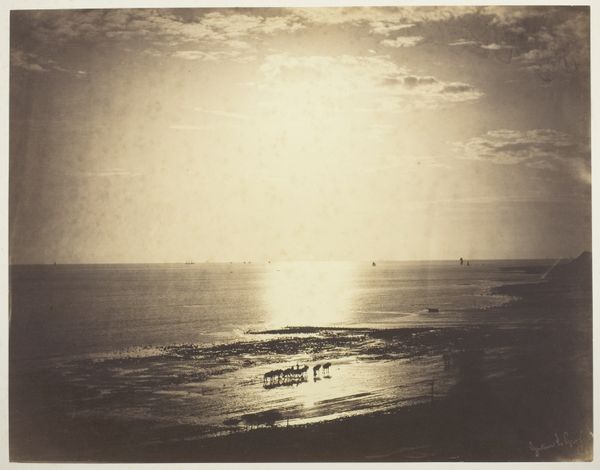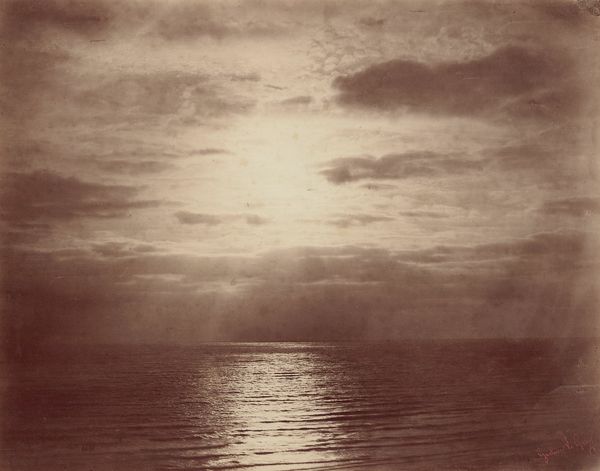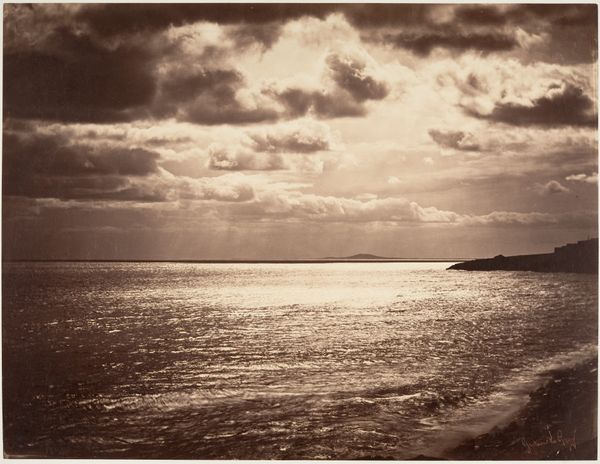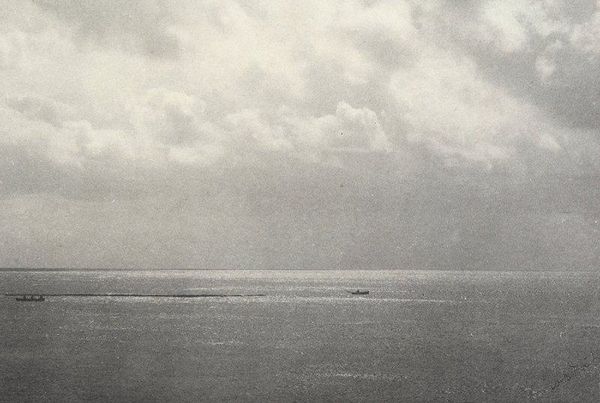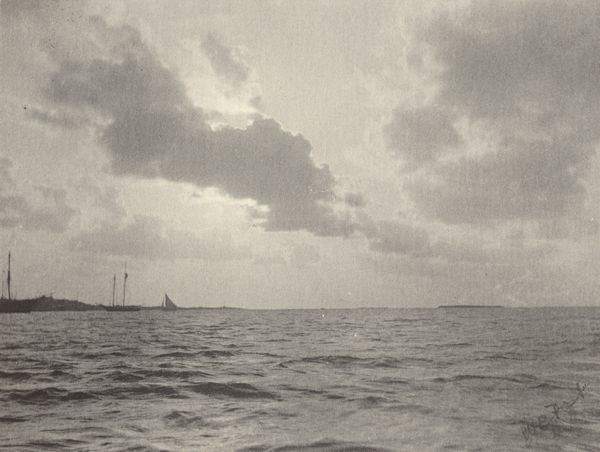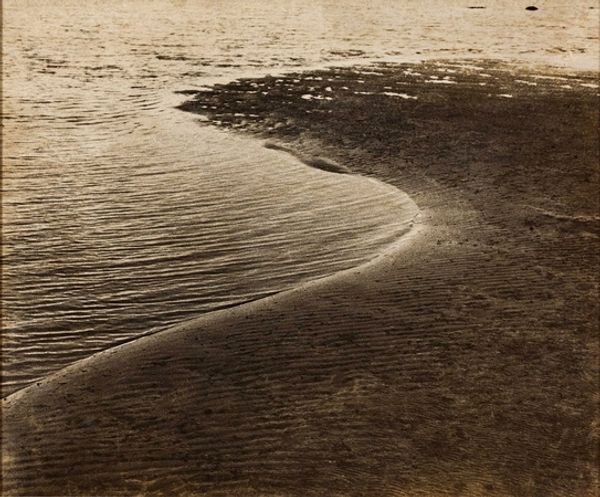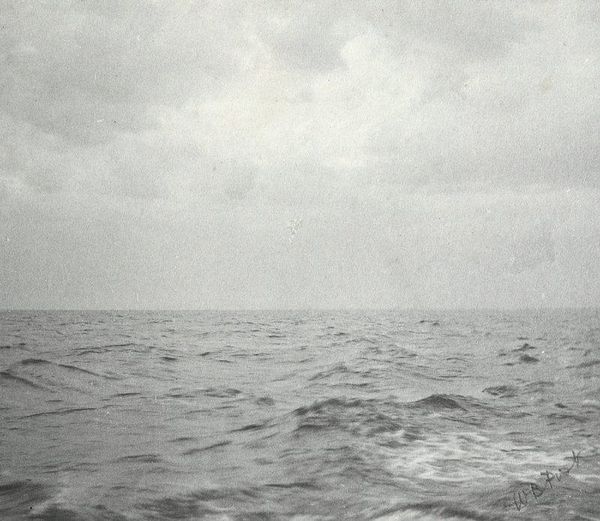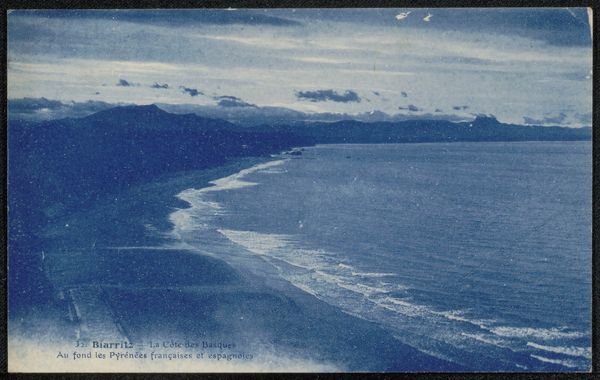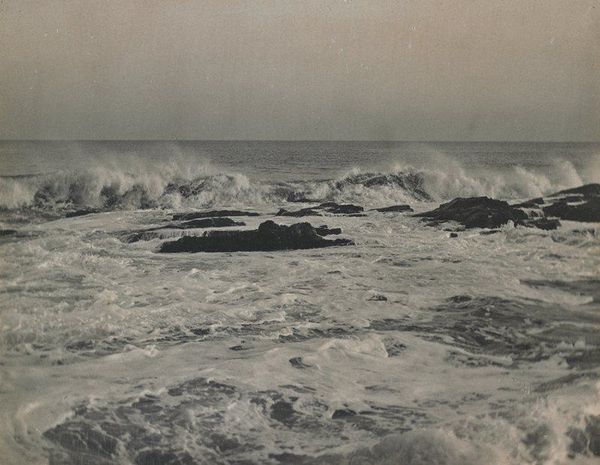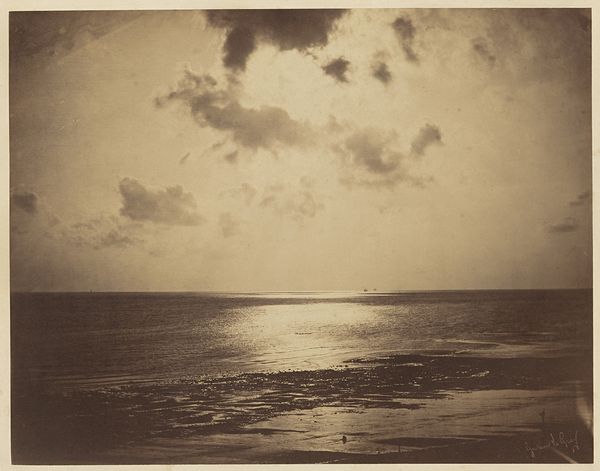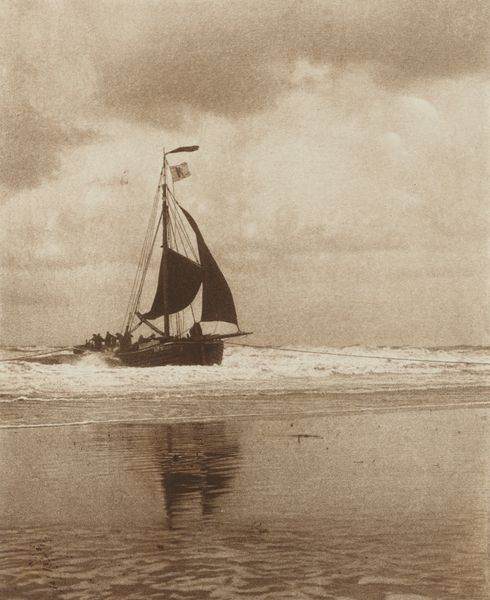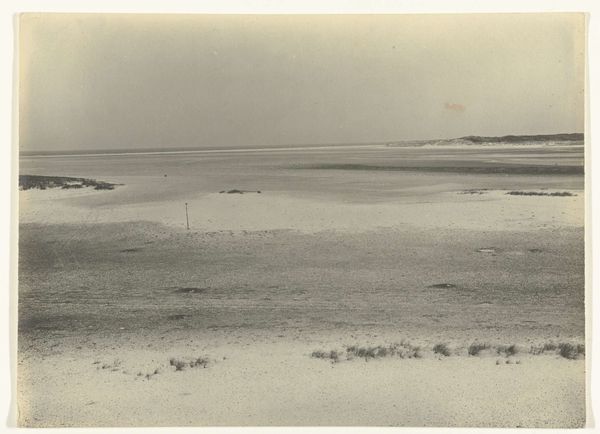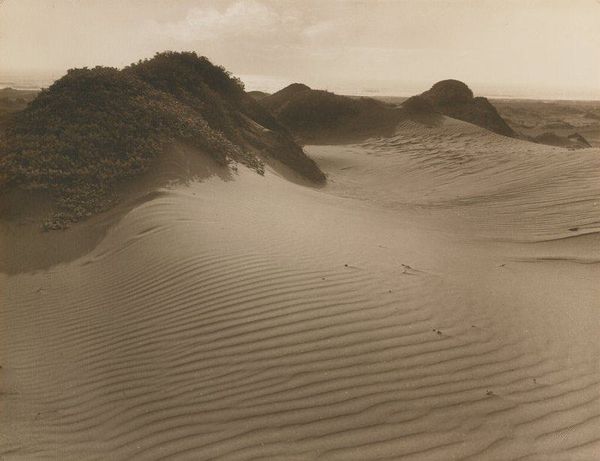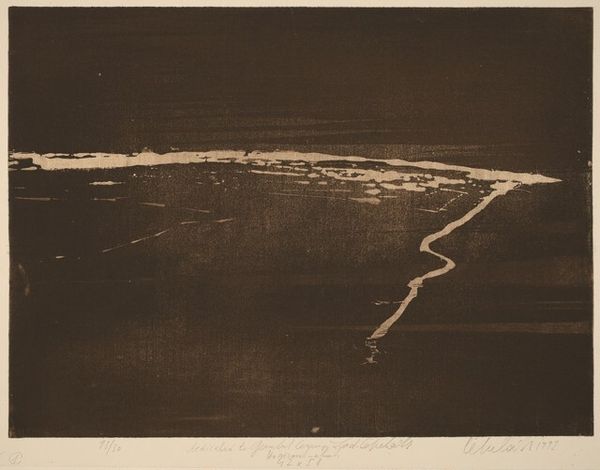
photography
#
sky
#
pictorialism
#
impressionism
#
landscape
#
charcoal drawing
#
photography
#
cloud
#
sea
#
monochrome
Copyright: Public domain
Editor: This photograph, simply titled "Untitled" by Anne Brigman, features a seascape rendered in monochrome. The reflective beach takes up a good portion of the frame, drawing your eye toward a cloudy sky. What's striking is its seemingly effortless simplicity. What are your thoughts when you see this piece? Curator: I am immediately struck by its embodiment of pictorialism, a movement where photography attempted to mimic painting and etching. This image's softness isn't accidental; it's a deliberate blurring of the line between "fine art" and photography, a challenge to the established art world. Notice how Brigman evokes the aesthetic of Impressionism in the manipulation of light and tonality, how she attempts to portray her subjective *impression* rather than creating a crisp rendering of the external world. Do you think it succeeds in elevating photography to the level of painting? Editor: I think so. The dreamlike quality certainly invites you in, and I suppose challenges preconceived notions about photography. Are you saying that prior to this period, photography wasn't necessarily considered fine art? Curator: Exactly. Early photography was often viewed as a purely technical endeavor, a tool for documentation rather than artistic expression. Pictorialists like Brigman were pushing back against that notion, fighting for recognition within artistic institutions and broader cultural acceptance. Editor: So, an image like this wasn’t just about capturing a scene, but making a statement about the role and validity of photography itself? Curator: Precisely. Every deliberate artistic choice - the soft focus, the atmospheric perspective - was a conscious decision meant to challenge the established order and reshape photography's image within society. The image becomes a political act, doesn't it? Editor: Absolutely, I had never considered that photography could be used to enter into broader debates around fine art in that period. Thanks so much for clarifying. Curator: My pleasure! Thinking about art in this light always gives me something to chew on.
Comments
No comments
Be the first to comment and join the conversation on the ultimate creative platform.
